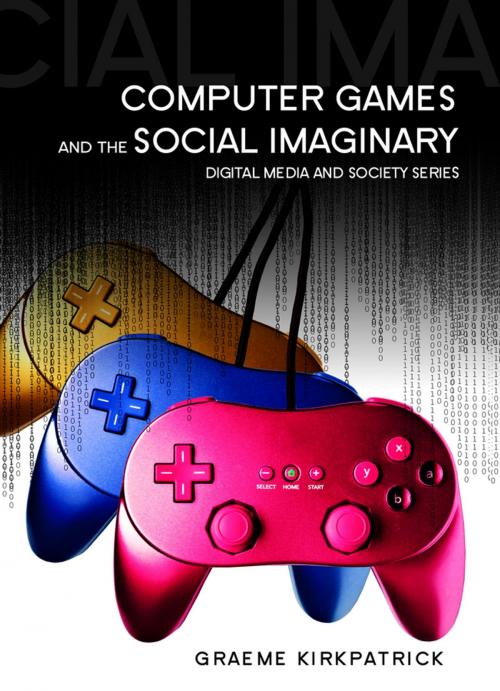Computer Games and the Social Imaginary
Nonfiction, Social & Cultural Studies, Social Science, Cultural Studies, Popular Culture| Author: | Graeme Kirkpatrick | ISBN: | 9780745671901 |
| Publisher: | Wiley | Publication: | October 30, 2013 |
| Imprint: | Polity | Language: | English |
| Author: | Graeme Kirkpatrick |
| ISBN: | 9780745671901 |
| Publisher: | Wiley |
| Publication: | October 30, 2013 |
| Imprint: | Polity |
| Language: | English |
In this compelling book, Graeme Kirkpatrick argues that computer games have fundamentally altered the relation of self and society in the digital age.
Tracing the origins of gaming to the revival of play in the 1960s counter culture, Computer Games and the Social Imaginary describes how the energies of that movement transformed computer technology from something ugly and machine-like into a world of colour and ‘fun’. In the process, play with computers became computer gaming – a new cultural practice with its own values.
From the late 1980s gaming became a resource for people to draw upon as they faced the challenges of life in a new, globalizing digital economy. Gamer identity furnishes a revivified capitalism with compliant and ‘streamlined’ workers, but at times gaming culture also challenges the corporations that control game production.
Analysing topics such as the links between technology and power, the formation of gaming culture and the subjective impact of play with computer games, this insightful text will be of great interest to students and scholars of digital media, games studies and the information society.
In this compelling book, Graeme Kirkpatrick argues that computer games have fundamentally altered the relation of self and society in the digital age.
Tracing the origins of gaming to the revival of play in the 1960s counter culture, Computer Games and the Social Imaginary describes how the energies of that movement transformed computer technology from something ugly and machine-like into a world of colour and ‘fun’. In the process, play with computers became computer gaming – a new cultural practice with its own values.
From the late 1980s gaming became a resource for people to draw upon as they faced the challenges of life in a new, globalizing digital economy. Gamer identity furnishes a revivified capitalism with compliant and ‘streamlined’ workers, but at times gaming culture also challenges the corporations that control game production.
Analysing topics such as the links between technology and power, the formation of gaming culture and the subjective impact of play with computer games, this insightful text will be of great interest to students and scholars of digital media, games studies and the information society.















